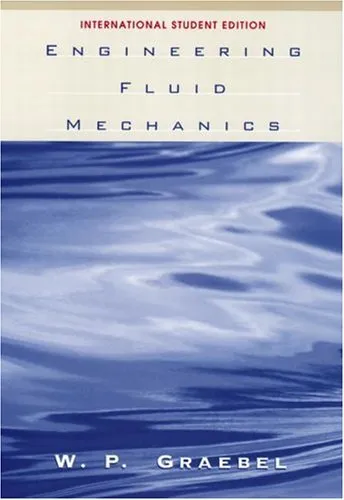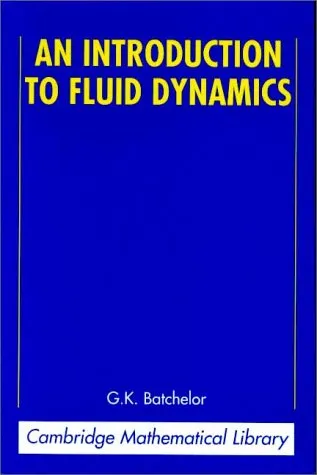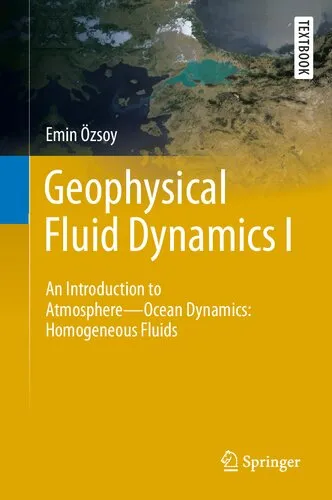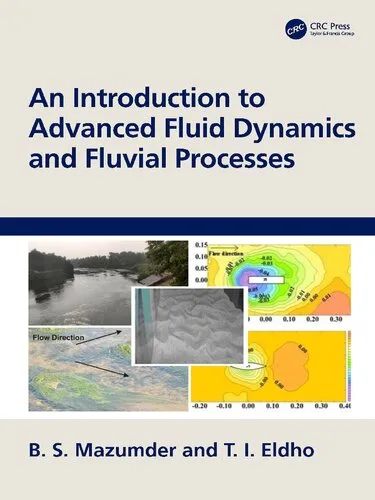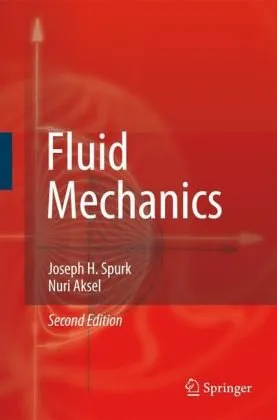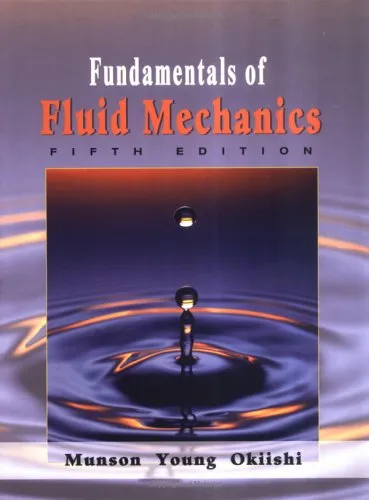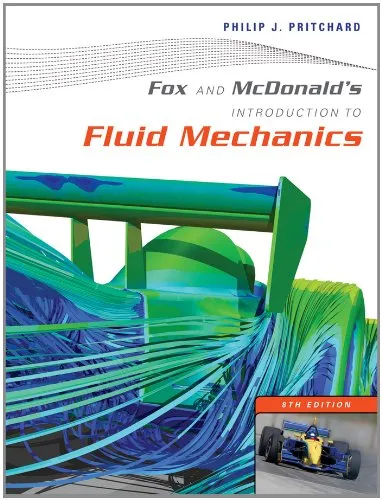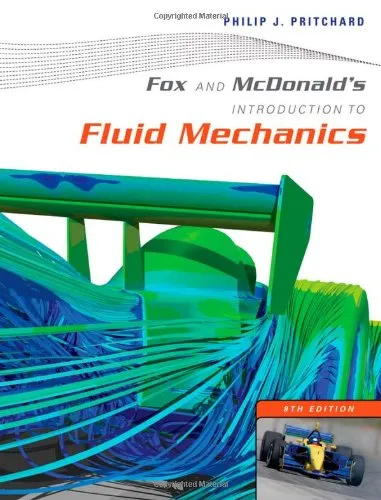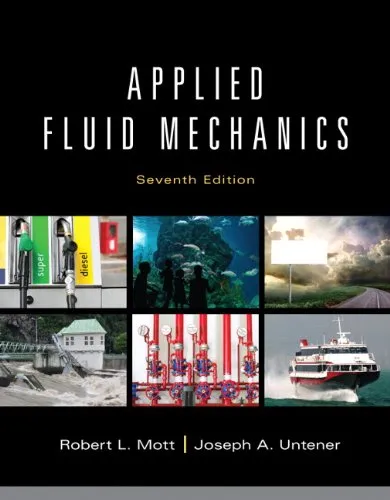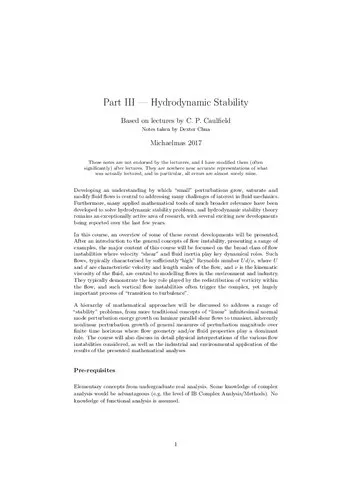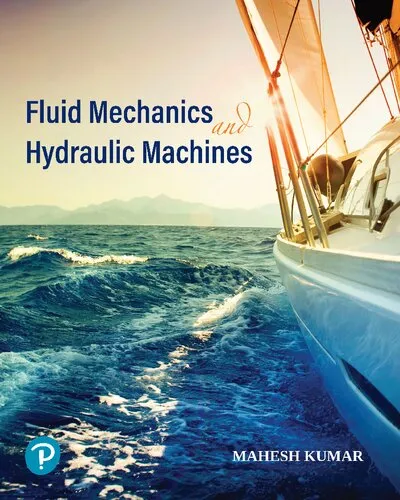Theoretical Hydrodynamics
4.5
Reviews from our users

You Can Ask your questions from this book's AI after Login
Each download or ask from book AI costs 2 points. To earn more free points, please visit the Points Guide Page and complete some valuable actions.Related Refrences:
Introduction to "Theoretical Hydrodynamics"
"Theoretical Hydrodynamics" is a seminal work by L. M. Milne-Thomson that has guided generations of engineers, physicists, and mathematicians in unraveling the various complexities of the behavior of fluids in motion. This comprehensive and methodically detailed book offers a profound exploration of the mathematical principles and theoretical frameworks governing hydrodynamics. With clarity and precision, the author meticulously bridges theory and application, making this text indispensable for advanced studies in fluid mechanics and related fields.
The book delves into the deep intricacies of fluid motion, addressing essential concepts such as velocity, pressure, and flow. Milne-Thomson’s authoritative treatment of subjects like potential flow, vortex motion, and advanced mathematical equations make "Theoretical Hydrodynamics" a cornerstone text in both academia and industry. The work distinguishes itself by its balance of theoretical rigor and practical application, providing insights that are as valuable in research settings as they are in solving real-world engineering challenges. Every chapter is thoughtfully arranged to provide clarity while advancing progressively through complex ideas.
Summary of the Book
In its essence, "Theoretical Hydrodynamics" explores the scientific study of the motion of fluids, providing a mathematical framework for understanding fluid behavior under various conditions. The book opens with a discussion on the fundamental principles of fluid mechanics, gradually introducing the navier-stokes equations, potential theory, and vortex dynamics.
Each chapter builds on the concepts of the previous one, elaborating on various aspects of incompressible and compressible fluid flows. Key sections include a thorough examination of irrotational flow, stream functions, and exact solutions to classical problems. Advanced chapters touch on more specialized topics, such as the theory of wakes, cavitation, and high-speed aerodynamics. Emphasis is placed not just on deriving equations but also on interpreting their implications for real-world problems.
With mathematical precision and a wealth of examples, the book remains an unparalleled resource that pushes the boundaries of hydrodynamic theory while maintaining broad applications in science and engineering disciplines.
Key Takeaways
- Fundamental understanding of fluid mechanics and the mathematical frameworks that describe fluid behavior.
- Comprehensive derivation and analysis of the Navier-Stokes equations, a cornerstone of hydrodynamics.
- In-depth study of vortex motion, boundary layers, and potential flow theory.
- Application of theoretical insights to practical engineering challenges, sustained by rigorous mathematical evidence.
- Clear guidance for solving classical and contemporary problems in advanced hydrodynamics.
Famous Quotes from the Book
"The theoretical study of fluids is not merely an exercise; it is a discipline that reveals the fundamental laws of nature governing some of its most subtle processes."
"Mathematics is the lens through which we view the elegant flow of motion within every substance in the natural world."
Why This Book Matters
"Theoretical Hydrodynamics" matters because it provides unparalleled insights into the scientific exploration of fluid mechanics. At the time of its publication, this book was revolutionary in offering a blend of mathematical sophistication and physical intuition, providing not just a theoretical backbone but also practical tools that have since shaped numerous industries.
For students, it offers a robust foundation on which to build expertise in fluid dynamics. For professionals and researchers, it serves as both a reference and a source of inspiration. The book's enduring value lies in its ability to clearly articulate timeless principles while also pushing boundaries in the understanding of complex flow phenomena. To this day, "Theoretical Hydrodynamics" continues to underpin advancements in aerodynamics, hydrology, and beyond, cementing its status as an essential contribution to the field of fluid mechanics.
Free Direct Download
You Can Download this book after Login
Accessing books through legal platforms and public libraries not only supports the rights of authors and publishers but also contributes to the sustainability of reading culture. Before downloading, please take a moment to consider these options.
Find this book on other platforms:
WorldCat helps you find books in libraries worldwide.
See ratings, reviews, and discussions on Goodreads.
Find and buy rare or used books on AbeBooks.
1633
بازدید4.5
امتیاز0
نظر98%
رضایتReviews:
4.5
Based on 0 users review
Questions & Answers
Ask questions about this book or help others by answering
No questions yet. Be the first to ask!

